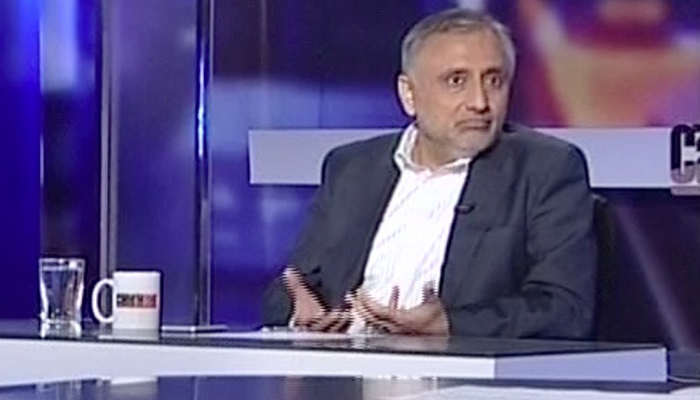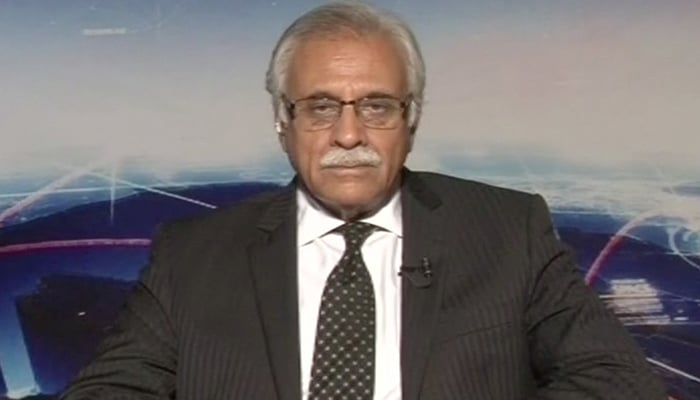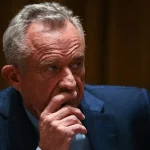Speaking on Geo News’ programme Capital Talk, the Pakistan Muslim League – Nawaz (PML-N) said that he personally didn’t agree with the choice but accepted it as his party’s decision.
“I wouldn’t have voted for him [Justice (r) Javed Iqbal] had I been asked for my opinion…better candidates were available, and I would have proposed different names [for the position], but I have accepted my party’s decision,” he said.

“However, I believe the said position’s power will soon be shared with a four-member commission.”
Elaborating on an amendment to the NAB law, which will allow a four-member commission instead of chairman NAB to take decisions, Khan said that his party wants to remove ‘draconian clauses’ from the law that can be used as the basis of ‘a witch hunt.’
“Concentrated power always brings with it, a high risk of abusing authority,” he asserted. “A draft is already being discussed by the parliamentary committee and we have reached a consensus on many things, save for one or two controversial clauses, so it won’t take too much time before the law is amended.”
He added that a lot of work has already been done on the draft, and it would “hopefully be approved soon”.
Responding to a question about the chairman NAB’s appointment, Advocate Ahmed Awais said that he didn’t believe that the appointed candidate had an ‘upright character’ or a lot of ‘integrity.’
Citing the March 9 suspension of the then chief justice of Pakistan (CJP) Iftikhar Ahmed Chaudhry by former president Pervez Musharraf, Awais said that Iqbal had taken charge as the acting CJP on the same evening when Chaudhry was illegally from his position.

“After the senior judiciary was sent packing on November 3, Iqbal took charge as the Chairman of the Press Council of Pakistan (PCP),” he said.
“He violated his oath by taking the charge as he was unconstitutionally removed and later was restored as a Supreme Court judge.”
Coming down hard on the chairman NAB, the advocate was at best a ‘manager’ and one who ‘suited both the Leader of the Opposition and the Leader of the House.”
He questioned the PML-N’s judgment “even after Iqbal’s performance in the Abbottabad Commission and the Commission of Inquiry on Enforced Disappearances”.
Pakistan Peoples Party senior leader and member of the national assembly, Shazia Murree, refuted claims that Iqbal’s appointment was an underhand deal between the ruling party and the PPP.
“Imran Khan has a habit of using the propaganda theory of underhand deals to keep his political career alive,” Murree said.
“The appointment wasn’t the PPP’s decision alone; it was consultation and consensus.”
When the presidential reference against chief justice Iftikhar Mohammad Chaudhry was filed on March 9, 2007, Iqbal served as the acting CJP until March 23, 2007.
Iqbal refused to take oath on the Provisional Constitutional Order (PCO) on November 3, 2007. As a result, he was removed from the Supreme Court along with eleven other judges.
Later he was appointed as the chairman of the Press Council of Pakistan (PCP) for three years on November 11, 2007. He announced on April 12, 2008 that he had resigned from that position.
On March 17, 2009, as a result of the lawyer and civil society movement for restoration of judiciary, Justice Iqbal was restored as the member of the Supreme Court bench.
Retired Justice Iqbal was one of the judges of superior courts who took a fresh oath under (Retired) General Pervez Musharraf’s controversial Provisional Constitution Order in 1999, which in effect abrogated the country’s Constitution.
Born in 1936, Justice Iqbal has headed two important commissions; the Abbottabad Commission formed to probe the preludes and causes of the US raid in Abbottabad in 2011 that led to the death of Osama bin Laden.
He also headed the Commission of Inquiry on Enforced Disappearances, constituted at the behest of the Supreme Court by the Interior Ministry.





